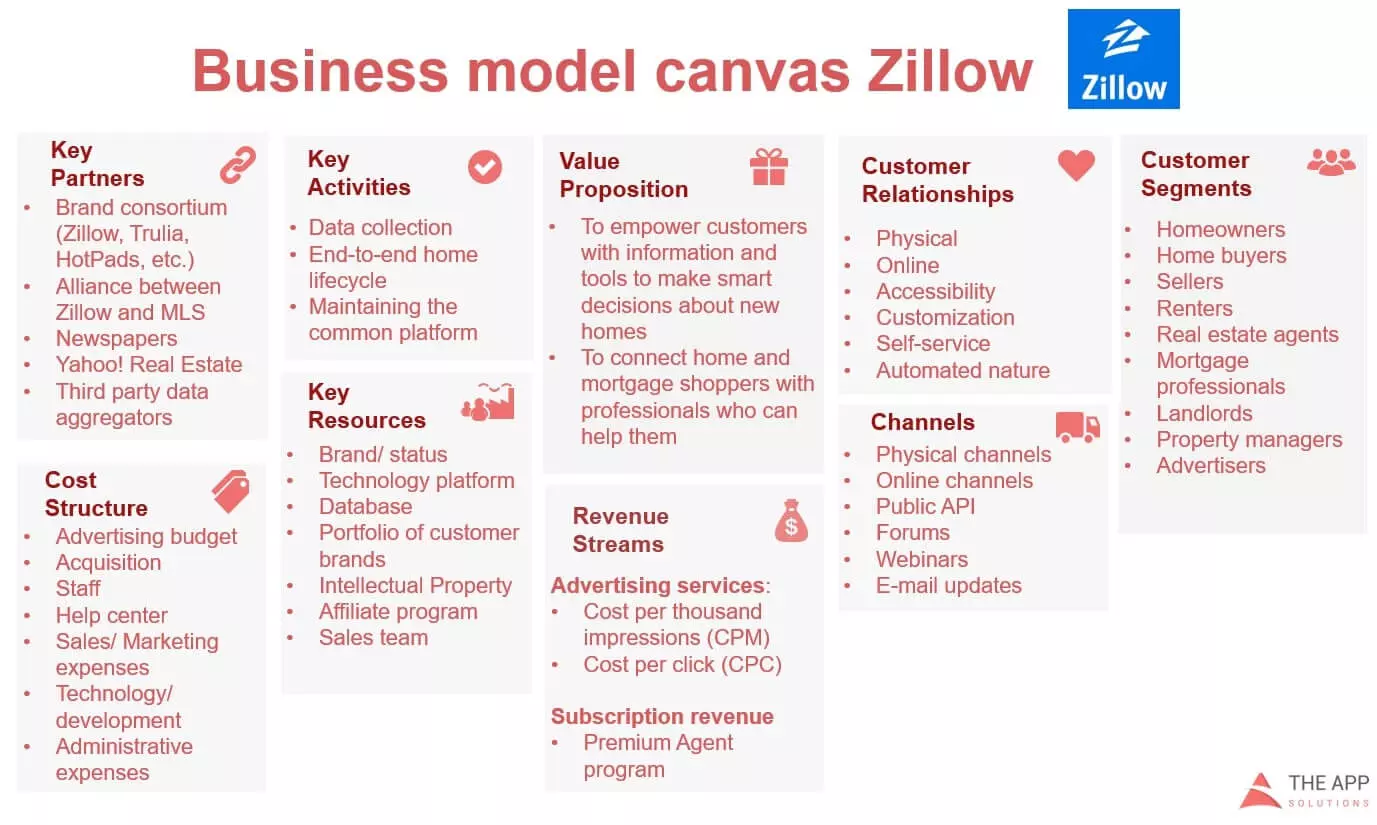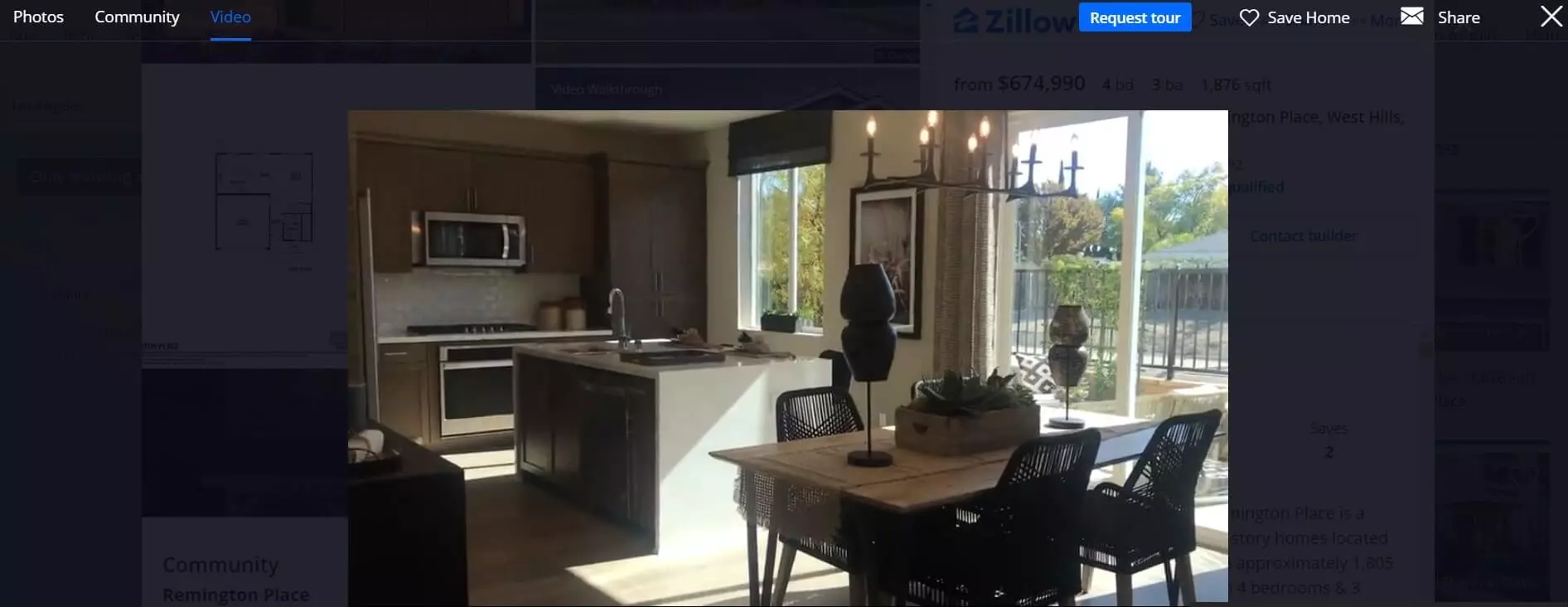When it comes to searching for a property, most of us turn to real estate websites rather than hiring a real estate agent. With its vast options and time-saving features, Zillow has become the go-to platform for buyers, sellers, and agents in the U.S. But how did Zillow become so popular, and how can you develop a real estate website like it without breaking the bank? In this article, we'll answer these questions and provide valuable tips to help you build your own real estate website.
 Image source: Zillow
Image source: Zillow
The Story Behind Zillow's Success
Zillow's journey began in 2004 when two former top Microsoft managers, Lloyd Frink and Rich Barton, launched a website that estimated a home's value and rental rates. Within three days of its launch, a million users visited the site to "Zestimate" the value of their homes. Today, Zillow has evolved into more than just a property listing website. Its monetization strategy involves running ads and promoting brokers and agents. As the CEO of Zillow Group, Spencer Rascoff, puts it, "We are a media company. We sell advertising. Having a large audience is critical."
How Zillow Makes Money
To generate revenue, Zillow offers various promotion services, including Premier Services for real estate agents, where they pay for running ads and receiving leads. Zillow charges per ad impression and per lead. Additionally, Zillow sells promotions to real estate companies, charging them based on cost per lead and cost per click. The platform also sells advertising space to lenders, mortgage professionals, and other businesses and operates a subscription model for mortgage services.
 Image source: Zillow
Image source: Zillow
In a nutshell, Zillow has become the ultimate real estate platform connecting buyers, sellers, investors, and agents. The website offers unique features and tools that help buyers find their perfect home and agents promote their business. Now, let's dive into the process of building your own real estate website.
How to Make a Real Estate Website Like Zillow: Essential Features
While it may be impossible to replicate Zillow's feature list without going bankrupt, we can guide you in building a real estate website that saves time and fits your budget. Here are the essential features for a real estate listing website MVP (Minimum Viable Product):
Property Listings and Databases
Having databases with properties is crucial for a real estate marketplace. If your agency already has its property database, your web development team can integrate it into the website's backend. However, if you don't have a database, you can consider integrating databases from sources such as the National Association of Realtors (NAR) or the Multiple Listing Service (MLS). Another option is to use the Zillow API, which allows you to access homes posted for sale on Zillow.
Filtering Algorithms
To facilitate user searches, you need to integrate a filtering algorithm into your marketplace. Consider search parameters like location, price, property type, area, and number of bedrooms. These filters will help users find their desired properties more conveniently.
Mapping and Geolocation
Integrate APIs like Zillow, GeoNames, Google Places, and MapBox to provide users with information about neighborhoods, local businesses, and custom maps with property listings and market data. This will help users explore the areas they are interested in.
Detailed Property Representation
Provide users with a detailed representation of properties using photos, videos, 3D models, and 360° panoramic images. Visual content helps potential buyers get a better understanding of the properties listed on your website.
Cloud Infrastructure
Given the large amount of high-quality visual content, opt for cloud-based infrastructure like Amazon S3 to store and manage your data effectively. Cloud storage ensures scalability, performance, and disaster recovery.
 Image source: Zillow
Image source: Zillow
How Much Does a Real Estate Website Like Zillow Cost?
Building a real estate website is a complex project involving API integrations and various user roles. To save time and money, we recommend launching your project as an MVP, focusing on the core features. This allows you to test the market and determine the earning potential of your idea. The cost of developing a real estate website MVP starts from $45,000. For a website with advanced features like integrated calendars and payment gateways, the cost can range from $100,000 to $200,000. However, these estimates may vary depending on your specific requirements and the number of features you want to implement.
To get a more accurate cost estimation for your real estate website, we offer a free quote. Feel free to reach out to us for a personalized consultation.
In conclusion, building a real estate website that rivals Zillow is an exciting and challenging endeavor. By focusing on essential features, integrating the right APIs, and utilizing cloud infrastructure, you can create a user-friendly and successful real estate marketplace. Good luck on your journey to revolutionize the real estate industry!
Related Articles:
- Chatbots for Real Estate: How to Choose the Right Solutions for Your Business
- How to Develop an App Like Netflix
- How to Build a Food Delivery App Like UberEats

















